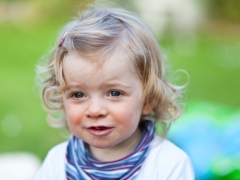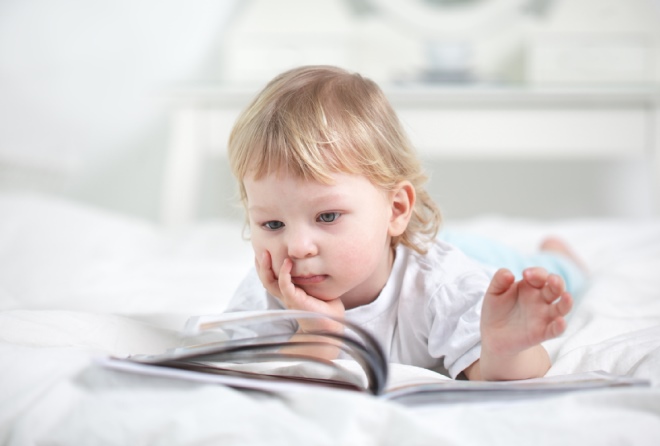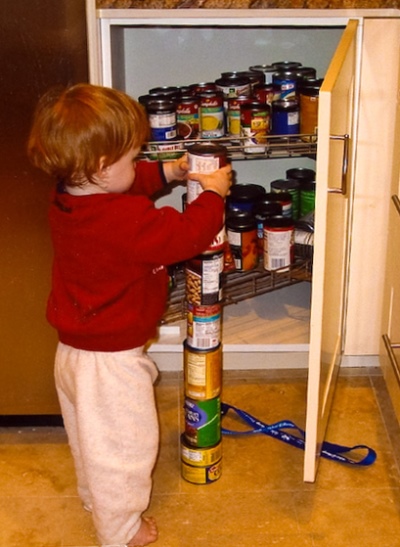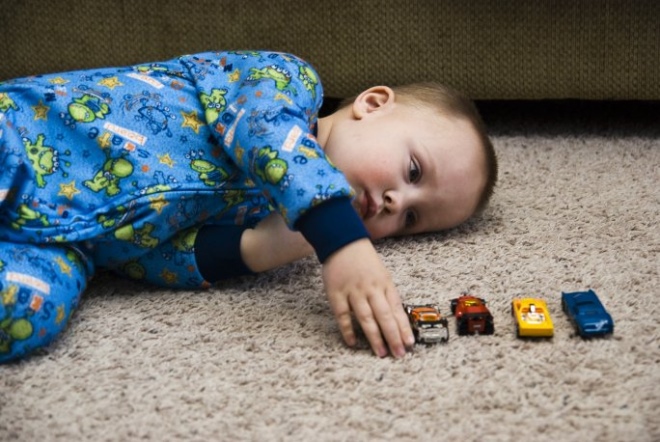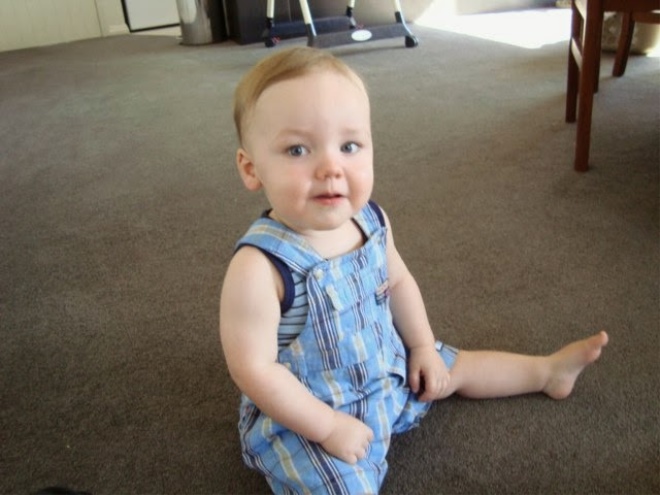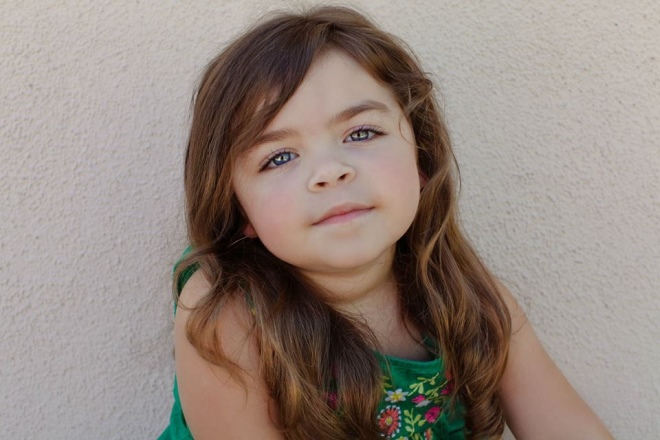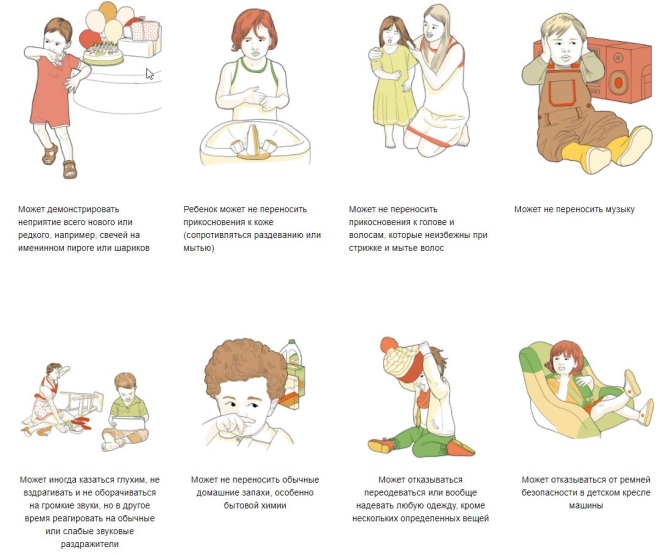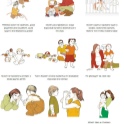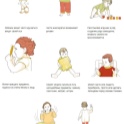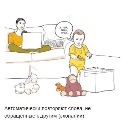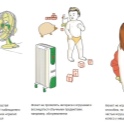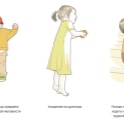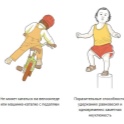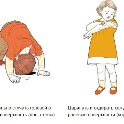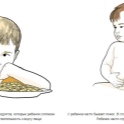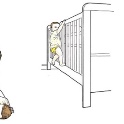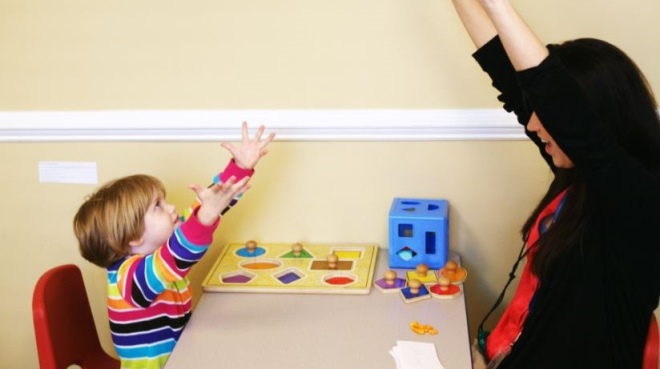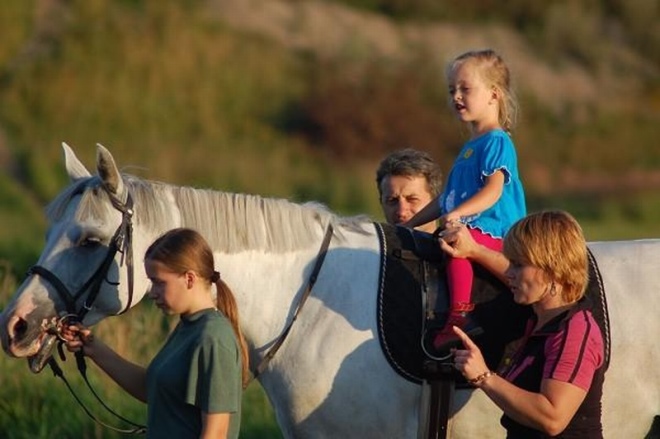Signs of autism in children under 3 years of age
The problem of autism in younger children is one of the most difficult in children's practice. At present, in Russia, various diagnostic tests are practically not used, which would allow to specify the diagnosis before the child’s three years old. Nevertheless, annually cases of newly diagnosed disease are recorded in children of preschool age. All parents should be aware of this disease in order to recognize the disease in time.
Characteristic
The first case of autism in children was described in 1943. This discovery was made by G. Asperger. Subsequently, even one of the syndromes in which the symptoms of the disease develop, was named after him - Asperger syndrome. The definition of the disease was given much later, after the accumulation of statistical data on the diseased.
Autism - This is a mental illness in which there are marked disorders in the cerebral cortex, leading to a complete disruption of social adaptation and a special perception of their own inner world.
The disease can occur at any age, including newborns. Children who are diagnosed with autism require a more careful attitude and a special approach.
The reasons
Today, most scientists believe that the cause of the disease are disorders in the genetic apparatus or congenital genetic inheritance. Very often, the first signs of the disease can be seen in infants or toddlers in the first year of life. However, these manifestations are often attributed to the nature or temperament of the child.
Autism is more common in boys. The ratio is 4: 1. Girls suffer less often. Often babies have a high predisposition to the disease, if their close relatives or parents have the disease.
The disease is inherited by an autosomal recessive trait. This means that even if both parents are sick with autism, the risk of having a healthy child is 25%.
Not only hereditary predisposition can lead to the appearance of the disease. There are scientific studies that have shown a link between the effect of some provoking factors on the development of the disease. As a rule, this action occurs during the intrauterine growth of the baby.
Such provoking factors include:
Infection of a pregnant woman various bacterial or viral infections. Such infection of the fetus during the first 8 weeks of intrauterine development is especially dangerous.
The impact on the unborn child of various toxic chemicals. This usually happens if mommy is working in hazardous industries or industrial plants during pregnancy.
Strong ionizing radiation. It is found in various industries where work is carried out with ultrasound or infrared rays. All types of radioactive radiation can also affect the structure of the nervous system and cause symptoms of autism.
Classification
Early childhood autism can occur in a variety of ways. Usually, doctors use different classifications that allow us to divide the forms of the disease according to similar signs.
The disease can be mild, moderate and severe. The basis of this classification is the severity of adverse symptoms.
- With mild severity impaired intellectual abilities in the baby does not occur.Such children practically do not lag behind in the level of mental development of their peers. Careful observation of the child can reveal some features. As a rule, this form of the disease is diagnosed in 3 years.
- With moderate autism more persistent violations of motor functions are manifested, as well as speech disorders. Children at the age of 2 barely speak. Some babies can pronounce only single words or phrases, but speech turns are meaningless and are just a simple set of syllables.
- For heavy current characterized by marked disorders of brain activity. Children practically do not respond to others, do not answer questions addressed to them. Kids at the age of 1.5 years for development correspond to a 6-7 month old child. This form of the disease is characterized by an unfavorable course and a relatively poor prognosis of treatment.
Signs of autism
The main symptoms of the disease include the following symptoms:
Impoverishment of emotions. Kids who do not have deviations in mental development, with any smile or stroking, experience positive emotions and react in response. Children with autism are virtually unresponsive. Physical or physical contact does not cause them any response. The child remains indifferent or tries to turn away.
Focused look. Usually, babies of the first year of life begin to fix their gaze on a single subject. Most often, children with autism have a “missing” look. They never look their interlocutor in the eye, but for hours they may consider some part of a toy or a drawing on the wall. It often seems that the baby is simply immersed in itself.
Slow potty training. Usually for kids with autism, this becomes a very difficult task. Often, only at the age of 3-4 years, the child completely wean off the diapers and gets used to going to the pot.
Speech disorders. As a rule, autistic kids start talking quite late. Even after uttering the first words, they can be silent for a long time. After a few months, they begin to speak again, but only a few separate syllables or words of the same type are pronounced.
Multiple repetitions of words. Children with autism often repeat a few words. To the question “are you going to eat?” They can repeat “eat, eat, eat” several dozen times. It will stop only when one of the parents says “eat” after the monologue of the child. After that, he usually falls silent.
Movement of the same type. Austeists like to repeat an action many times. Usually they turn on and turn on the light or open the water tap. Any attempts to make a remark that doing so is not good or wrong, the child does not perceive adequately and begins to repeat again and again.
Change gait. Quite often, a small autist begins to tiptoe or swing his arms while walking, as if depicting a bird or a butterfly. Some babies may bounce when walking.
Psychological features. Usually, an autistic kid becomes more withdrawn. Such children often have serious difficulties in trying to make new friends. Toddlers usually do not play with other children in the sandbox or leave the playground, avoiding new acquaintances.
Favorite food. Usually, an autistic child has a pronounced inclination and love only for certain foods. Introducing new products into his diet is becoming an overly complex task for any mom. The kid categorically refuses everything new, demanding the dishes that are familiar to him. Children at the age of 2-3 years eat only from familiar dishes. New cutlery can cause your baby a real panic attack.
Strict organization. Toddlers-autists are always trying to organize their toys or objects.They line up their dolls or animals by color, by size, or by whatever criteria they understand. Any violation of this order can cause a strong apathy in the baby or, on the contrary, lead to aggressive behavior.
The possibility of self-aggression. In children with autism, the limits of perception of the external and internal world are violated. Quite often, they overly painfully perceive any attempts to invade their personal world. In this case, they show aggression not towards another person, but towards themselves. Kids can bite themselves on purpose and even try to fall out of the crib or playpen. It should be noted that such symptoms occur predominantly in fairly severe forms of the disease.
Diagnostics
Determining autism is a very difficult task, not only for parents, but even for an experienced doctor. Testing at home does not always allow you to get an accurate verdict about whether a child has a disease. Such a study is only auxiliary. If the parents have noticed that the child has certain features in the behavior, then you should definitely show it to the doctor.
In order to successfully diagnose a disease, several tests are required.
Usually the diagnosis of autism is made collectively. For this purpose, a commission is created of several specialists who have sufficient knowledge of working with such children. It includes: psychotherapist, medical psychologist, speech therapist and rehabilitologist.
The main approaches to the correction
To date, the specific treatment of the disease has not been developed. Genetic predisposition of the disease makes it impossible to create one unique pill that would lead to complete recovery.
Autism treatment is complex. Prescription drugs are used only to eliminate the adverse effects of the disease, which are not amenable to psychological impact through the use of other treatment methods. Usually, all drugs prescribed by a psychiatrist. Such drugs are quite serious and are prescribed only for a certain short period of time to relieve acute negative symptoms.
Child psychologists are sure to work with babies diagnosed with autism. The purpose of these classes is to improve the child’s social adaptation by applying various psychological techniques.
The psychologist in the form of a game simulates various life situations that can inflict psychological trauma on a child or worsen his condition. During these games, the baby learns to properly respond to any difficulties and more easily builds interpersonal contacts with other people.
Speech therapist visit It is also one of the important stages of treatment. In order to restore the child's speech, it requires regular training with a specialist. During such training, the kids noticeably expand their vocabulary and speak less homogeneous sentences. Also, such classes significantly improve the process of social adaptation of the child. Kids are less afraid to talk to strangers and faster to contact.
In order for a small autist to practically not feel his illness, various methods of restorative and recreational activities are used. Small autists are recommended hippotherapy or dolphin therapy. Kids love to spend time with animals. Such exercises have a beneficial effect on the nervous system of the child and have a positive effect on the whole process of treatment and rehabilitation in general.
To determine the disease at an early age is a very difficult task, but necessary. The sooner the diagnosis is established and the sooner the rehabilitation measures are started, the more chances for a better adaptation to the environmental conditions of a child who has autism.
Such kids require a more careful and careful approach.Only a competent attitude from others and closest people allows the kids to better adapt to life and achieve success.
In the next video, Yana Summ - the former wife of Konstantin Meladze - on my own experience talks about what symptoms the child needs to pay attention to.
You will learn more about early autism by watching the following video.
